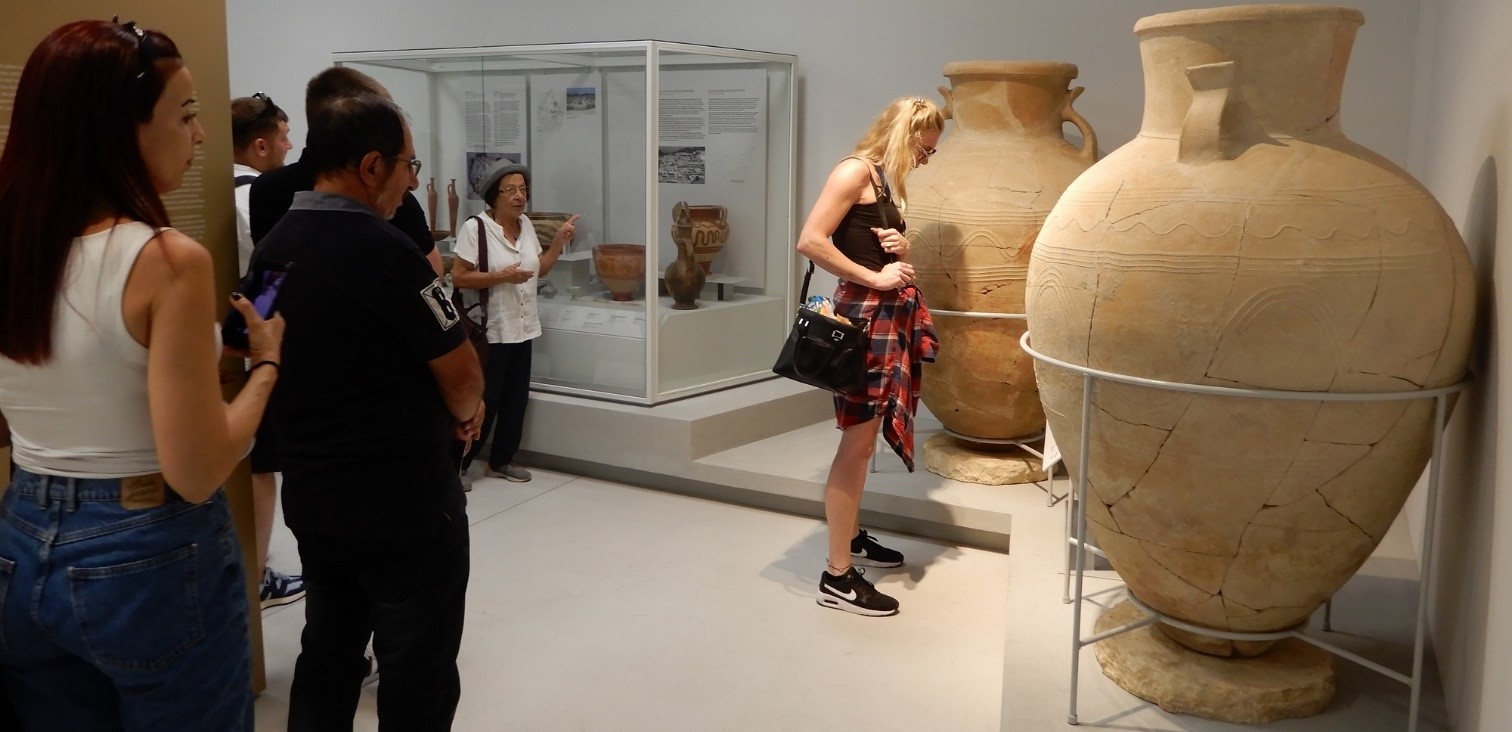CrimART project (01/10/2021-01/10/2023) reached its conclusion after a journey spanning of 24 months for participants and key stakeholders, in the domain of law enforcement cooperation in the fight against organized crime on property and criminal handling in cultural property and CITES (Convention on International Trade in Endangered Species of Wild Fauna and Flora).
CrimART served as a vehicle for identifying the best practices in data collection as well as the most efficient tools for strengthening cooperation of international law enforcement agencies, by providing them with the skills and operational tools needed to protect cultural heritage. It also kept track of and analyzed information exchange between different law enforcement agencies to spot actions related to organized crime against property and illegal trafficking in cultural goods and CITES. The consortium has demonstrated to law enforcement officials how to handle such matters in a number of international training sessions.
During the training session that took place in Cyprus on 1-3 November 2022, lectures were presented by a representative of the Church of Cyprus and experts from the Department of Antiquities, the Department of Customs, the Cyprus Police, the Defence and Security Academy of the Ministry of Defence and the Cyprus Institute.
The participation of the Cyprus Police in this EU co-funded project has been very significant due to the long history of Cyprus and its huge cultural heritage. As a result of the 1974 Turkish invasion, much of Cyprus’ cultural heritage was looted by the invaders. Many graven images, vessels and manuscripts have been stolen, while murals have been forcibly removed from Holy Temples and others have been destroyed. Many of these cultural goods have been identified at auctions abroad.
In addition, over 550 churches and religious sites in the occupied territories have been destroyed or looted and thousands of antiquities have been illegally exported.
Among the positive aspects of recent years is the upgrading of the legal framework in several foreign sites, so that the cultural heritage of other countries is better protected.
It is worth noting that in the framework of the above project, members of the Cyprus Police had the opportunity to participate in similar training sessions in Poland, Germany, and Moldova. A total of 47 members of the Cyprus Police, Customs Department, Antiquities Department and Cyprus Institute had the opportunity to participate in several trainings.
Results of the project:
The CrimART project has effectively improved collaboration for the benefit of law enforcement organizations in the Member States and EU bodies.
CrimART succeeded in its mission by concentrating on several key activities, including defining common approaches to preventing property crime, offering ad hoc training courses for law enforcement officials, creating a similar modus operandi, organizational culture, geopolitical proximity, and, most importantly, a similar level.
The project and its partners:
The project involved 6 partners from 5 countries: Poland, Germany, Cyprus, the Czech Republic, and Moldova. The project beneficiaries were Police and Customs officers who have directly participated in the project. They served as multipliers for the target professional community in the 5 directly involved countries and all ISF and associated countries. In addition, long-term beneficiaries have been residents of the countries participating in the project, art collectors, traders, gallery owners, museologists, and scientific circles. The main indirect beneficiaries were other implementing bodies and control bodies at regional / national / EU level, dealing with cultural goods. The project was co-financed 90% by the EU Internal Security Fund and 10% by the Republic of Cyprus.
The Consortium:
- Komendy Wojewódzkiej Policji w Krakowie (Poland) – Coordinator
- HOCHSCHULE FUR OFFENTLICHE VERWALTUNG – HFOV/IPoS (Germany)
- Cyprus Police (Cyprus)
- Inspectoratul General al Politiei (Moldau)
Source: The Cyprus Institute | News (https://shorturl.at/yPRS8)
